After having had three extremely ill chickens in urgent need of medical care recently, it has become painfully apparent to me that finding trained medical professionals who treat backyard chickens is difficult at best. If and when we are able to find any veterinarian willing to treat chickens, we consider ourselves lucky. Once past that hurdle, we just hope that they do the right thing from a treatment perspective, knowing that most vets do not have any significant formal training in poultry care. A 2013 study published by the United States Department of Agriculture’s National Animal Health Monitoring System projecting an increase in urban backyard flocks of over 400% in the next 5 years, it is time to discuss our expectations for medical care of our chickens among ourselves and with our veterinarians.
I have had chicken-care conversations with nearly a dozen vets over the past year, one of whom emailed me last autumn with some questions about starting her own backyard flock. I mentioned the dire need for chicken veterinarians across the United States and she indicated that she “…would like to feel educated on the basics of chicken medicine.” I encouraged her to seek formal education in the field not only for her own future flock, but to help bridge the gap between sick or injured chickens and caregivers. I was heartened to know that she completed some online education this past winter.
Esther had ovarian cancer, a very common condition in older laying hens, which required putting her down. Stella was also euthanized when it was discovered that she had a severe case of egg yolk peritonitis. Both conditions were confirmed by necropsies.
After having participated in a public forum on backyard chicken-keeping recently, this particular veterinarian’s feelings were that: “chicken people complain that vets don’t know anything but they also are willing to pay nothing to have their animals taken care of properly. It’s a bad cycle of bad feelings. I hate for (animals) to suffer with a treatable problem. I could use some guidance regarding charging for treatment and an approach to dealing with the notion that vets don’t know anything about chickens.” She and I have had several discussions about veterinary care for backyard chickens. I admire her candor and willingness to discuss these issues and while I am happy to share my opinions with her, I believe these important topics ought to be discussed within and between the chicken-keeping and veterinary healthcare communities generally. Only by fleshing out these issues collaboratively, nation-wide can we eventually come to a place where we are comfortable discussing our birds’ health with our vets, comfortable with the care our chickens receive and where vets are comfortable including chicken-care as a component of their practice.
Edited to add: This subject hit the front page of The Wall Street Journal after reporter Jon Kamp contacted me to discuss an different topic, piquing his interest in the lack of trained, experienced poultry vets for backyard chickens.
I invite you to share your thoughts on some, any or all of the questions below. Please limit your comments to constructive input regarding your own thoughts, feelings and decisions you would make for your flock. Please refrain from passing judgment on the decisions another chicken-keeper may make for their flock or engaging in debate with another reader. Comments will be moderated to ensure compliance with this request for a judgment-free dialogue.
For example:
DO feel free to share that you view your chickens as livestock and if they are sick, you cull them.
DO NOT share that you believe anyone who takes their chicken to a vet is wasting their money.
Some of the issues you may wish to address are:
- Do you view your backyard chickens as livestock, pets or something else?
- Is it important to you to know that there is a veterinarian available who will treat your chicken(s)?
- Would you bring a chicken to see a vet if they did not have chicken training/experience?
- If a chicken vet practiced medicine in your community, would you bring your chickens to them for well-patient visits?
- Are you willing to pay the same exam and treatment fees for your chickens that you would pay for your cat or dog?
- Do you believe that the negligible cost of purchasing a chicken means that vets should discount their fees? If so, is that fair to the practitioner?
Please feel free to share any other thoughts you may have on the subject of chicken medical care in the comments below.
Kathy Shea Mormino
Affectionately known internationally as The Chicken Chick®, Kathy Shea Mormino shares a fun-loving, informative style to raising backyard chickens. …Read on


shop my SPONSORS
After having had three extremely ill chickens in urgent need of medical care recently, it has become painfully apparent to me that finding trained medical professionals who treat backyard chickens is difficult at best. If and when we are able to find any veterinarian willing to treat chickens, we consider ourselves lucky. Once past that hurdle, we just hope that they do the right thing from a treatment perspective, knowing that most vets do not have any significant formal training in poultry care. A 2013 study published by the United States Department of Agriculture’s National Animal Health Monitoring System projecting an increase in urban backyard flocks of over 400% in the next 5 years, it is time to discuss our expectations for medical care of our chickens among ourselves and with our veterinarians.
I have had chicken-care conversations with nearly a dozen vets over the past year, one of whom emailed me last autumn with some questions about starting her own backyard flock. I mentioned the dire need for chicken veterinarians across the United States and she indicated that she “…would like to feel educated on the basics of chicken medicine.” I encouraged her to seek formal education in the field not only for her own future flock, but to help bridge the gap between sick or injured chickens and caregivers. I was heartened to know that she completed some online education this past winter.
Esther had ovarian cancer, a very common condition in older laying hens, which required putting her down. Stella was also euthanized when it was discovered that she had a severe case of egg yolk peritonitis. Both conditions were confirmed by necropsies.
After having participated in a public forum on backyard chicken-keeping recently, this particular veterinarian’s feelings were that: “chicken people complain that vets don’t know anything but they also are willing to pay nothing to have their animals taken care of properly. It’s a bad cycle of bad feelings. I hate for (animals) to suffer with a treatable problem. I could use some guidance regarding charging for treatment and an approach to dealing with the notion that vets don’t know anything about chickens.” She and I have had several discussions about veterinary care for backyard chickens. I admire her candor and willingness to discuss these issues and while I am happy to share my opinions with her, I believe these important topics ought to be discussed within and between the chicken-keeping and veterinary healthcare communities generally. Only by fleshing out these issues collaboratively, nation-wide can we eventually come to a place where we are comfortable discussing our birds’ health with our vets, comfortable with the care our chickens receive and where vets are comfortable including chicken-care as a component of their practice.
Edited to add: This subject hit the front page of The Wall Street Journal after reporter Jon Kamp contacted me to discuss an different topic, piquing his interest in the lack of trained, experienced poultry vets for backyard chickens.
I invite you to share your thoughts on some, any or all of the questions below. Please limit your comments to constructive input regarding your own thoughts, feelings and decisions you would make for your flock. Please refrain from passing judgment on the decisions another chicken-keeper may make for their flock or engaging in debate with another reader. Comments will be moderated to ensure compliance with this request for a judgment-free dialogue.
For example:
DO feel free to share that you view your chickens as livestock and if they are sick, you cull them.
DO NOT share that you believe anyone who takes their chicken to a vet is wasting their money.
Some of the issues you may wish to address are:
- Do you view your backyard chickens as livestock, pets or something else?
- Is it important to you to know that there is a veterinarian available who will treat your chicken(s)?
- Would you bring a chicken to see a vet if they did not have chicken training/experience?
- If a chicken vet practiced medicine in your community, would you bring your chickens to them for well-patient visits?
- Are you willing to pay the same exam and treatment fees for your chickens that you would pay for your cat or dog?
- Do you believe that the negligible cost of purchasing a chicken means that vets should discount their fees? If so, is that fair to the practitioner?
Please feel free to share any other thoughts you may have on the subject of chicken medical care in the comments below.



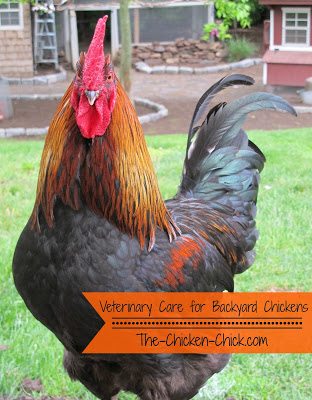


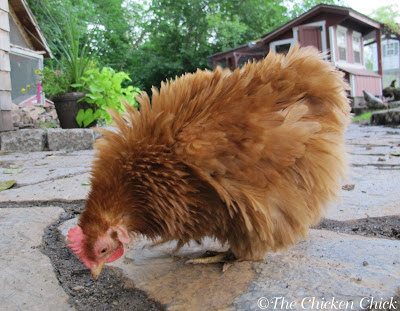
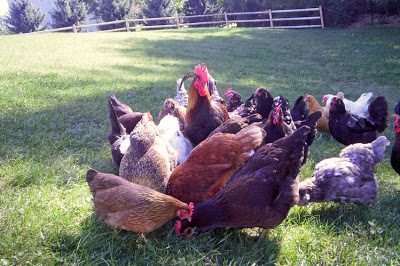

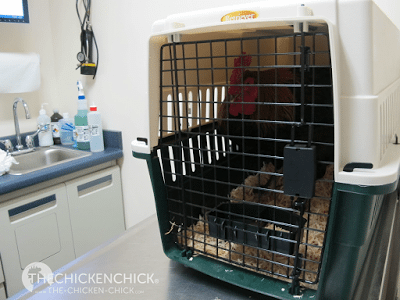
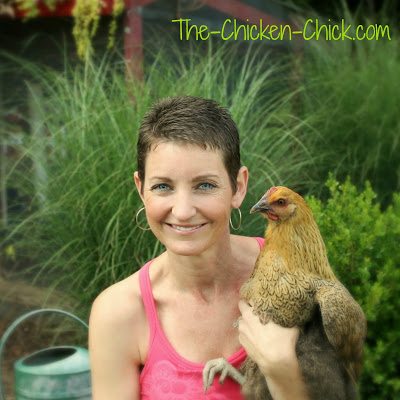






















I've found steam baths with a little eucalyptus and lavender oil can help with larynx irritation and mucous breakdown. We have a medium sized dog crate that we house the bird in, lined with something absorbent (we use pressed pellet litter) to prevent moisture pooling on the bottom (change frequently to prevent mold growth). Then we place the bird in, and set a humidifier in front of the crate (not where the steam can directly come in contact with the bird). Cover the crate and humidifier with a dark sheet to contain the steam vapor and keep the steam bath… Read more »
My Silkie rooster is still not well. It's been almost 3 weeks now. He's eating, drinking, crowing, and chasing hens, but he has a cough. He has had two penicillin shots and is currently on the ninth day of Duramycin 10. I don't know what to do at this point. He is, by far, my favorite, very sweet and very protective over the girls. No poultry vets in my area. If anyone has any ideas what I can do to get rid of his "barky" cough, PLEASE help me…
If there was a chicken vet in my community, I would definitely bring my birds in if they became ill.
I expected the cost of veterinary care for my chickens to be significantly more than my dog's, but I was pleasantly surprised it was not. It's 20 mintues longer to drive to their vet but only $20 more for the office visit than my dog's.
The cost of veterinary care shouldn't be based on the purchase price of the animal. For example, free office visits aren't expected when an animal has been acquired at no cost from someone posting an ad in a newspaper.
One of my ladies, "Rocky," is looking sickly. She hasn't looked right for a week or so. Her comb is now very pale, she makes weak-sounding clucks, her posture is poor and her feet turn in WHEN she moves. She is now isolated so i can observe her routines but I have a suspicion that she isn't laying eggs because she looks bloated. Did online research to find somewhere to take her didn't have any luck. Our chickens are pets to my 3 kids. The last thing we want is for Rocky to suffer unnecessarily. Any suggestions or feedback?